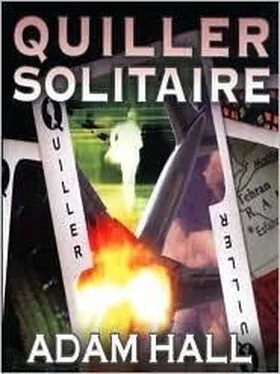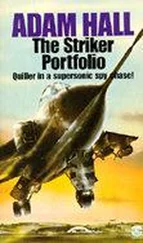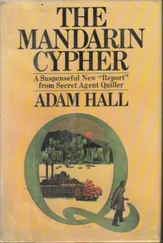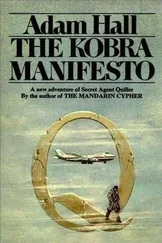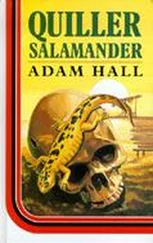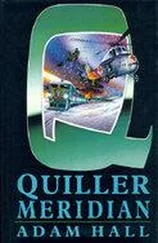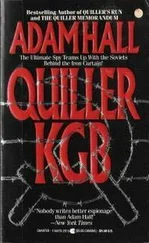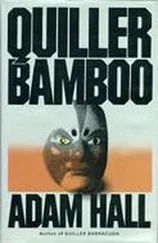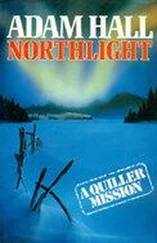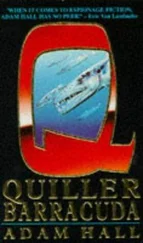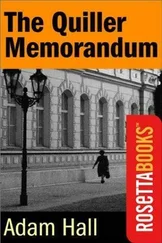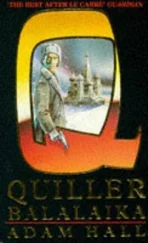'None too well.'
In good English Klaus said, That is perfectly all right.'
It was cold outside and there were bright stars pricking the glow of the city's lights. All I could see around us were trees, some of them with the last of the autumn leaves still clinging, trees and high walls and street lamps in the distance. But a plane was settling on its approach path, lined up with Sirius, and it confirmed what I'd thought before: the house was somewhere north-west of Tegel Airport, in or near Kreis Oranienburg.
The car was a Volvo 940 and Schwartz had the door open for Klaus and he got in and I followed. There was a pale blue headscarf on the seat and I put it into the glove compartment. The theft of the car was routine security procedure and I would have expected a probable former Stasi colonel to practise it. Up to a point he trusted me, but this house was his headquarters and any calls from it could be traced. Anyone trying to trace the call I was going to make wouldn't get any farther than a stolen Volvo, whereabouts unknown.
'You don't object,' Klaus said suddenly, 'to my listening in?'
'Of course not.'
The man Schwartz hadn't gone back to the house; I could see part of him in the offside mirror, silhouetted against the street lamps. There would be other guards in the grounds. It was fifty yards, sixty, from the Volvo to the black iron gates I'd seen when we'd come out of the house, and they would possibly be locked, certainly watched. Dieter Klaus was young, thirty or thereabouts, younger than Krenz, the man who had died in the Mercedes, and he was athletic, Klaus, walked with a spring, turned quickly. But that particular strike, made with the requisite speed, is close to instantaneous in its effect, however young the target, however athletic.
'You have the number?' Klaus asked me.
'Yes.'
He switched the ignition key to arm the ancillaries, and the telephone beeped and lit up.
And it's true of course that we are obliged, we the ferrets in the field, are obliged to take life solely in the defence of our own, and not, shall we say, in order to expedite the mission by removing the kingpin of the opposition, in order to save other lives by so doing, perhaps hundreds of other lives. We are required, by the strictest conceivable edicts of those who rule us, never to play God.
But temptation sometimes comes our way, and I sensed him beside me, Klaus, the kingpin of the opposition, the dark mind of Nemesis, could hear his breathing, could smell with a certain distaste the rather cheap cologne he used, would feel, if I moved my hand an inch or so, the pulse in his wrist, could destroy, if I moved my hand with the requisite speed, the source of its pulsation, life.
But then there were the guards and the gates and those pontifical bloody priests of the temple in far Londinium and we mustn't play God, must we, but there are times, my good friend, when we stay our hand, we the dirty little ferrets in the field, only because we know we haven't got a hope in hell of getting away with it.
Klaus was waiting.
Dial the number.
He watched me doing it, and could memorise the number if he wanted to, but it would have looked suspect if I'd shielded the grid with my hand: the semblance of trust must be maintained, was vital.
I held the receiver to my left ear, the side where Klaus was sitting. I couldn't tell how much sound he could pick up from the earpiece, how accurately he could make out words. It wouldn't have to be important; we would have to pick our way through this conversation, the Englishman and I, as through a minefield.
'Hotel Sachsen.'
'Herr Foster, ' I said. ' Der Englander.'
We waited. Sound came into the sky, and the strobes of a jet flashed across the driving-mirror through the rear window.
'Bitte?
I switched to English, gave it an accent.
'Is that you, Charlie?
Cone didn't hesitate.
'Yes. Who's that?'
'Hans. How's Mary?'
'She's fine.'
There are certain classic words and phrases in the Bureau's prescribed speech-code that light up the board when they come in to Signals, and I'd just used two of them. Is that you, Charlie? indicates that the caller is either being overheard or is an actual captive. How's Mary? is a warning that the caller wants the conversation to be played according to the leads he'll give, or attempt to give. I didn't need to throw in a signal for Cone to move out of his hotel as soon as he put the phone down: the Charlie bit had told him there could have been someone watching the number I'd dialled. He'd get out straight away, and my life-line to London would be cut, until he called me back.
'The client,' I said, 'is willing to deposit half the funds tomorrow into the Swiss account, and I'm to receive the other half on delivery, which is to be in Algiers. Is that all right with you, Charlie?'
'If you're willing to go there.'
'Oh, yes. Sign of good faith. The thing is, when can we deliver?'
Cone tried his first question. 'How soon do we have to do it?'
'As soon as we can.'
'I'll check with Samala.'
'Do that. Tell him we're only contracted for the nuclear warhead, not the whole NK-9 missile. Same price.'
'Warhead only.'
'Yes.'
He'd be hunched over the telephone, Cone, his back to the blizzard he lived in, had probably lived in since childhood, when he'd been abandoned or orphaned or in one of a hundred ways cast out, hunched over the telephone now in a small Berlin hotel wondering what London would do with this, wondering as I was what London would do. They could wreck Solitaire if they didn't get this thing absolutely right.
The figures on the dashboard clock flicked to 10:14. It would be a few minutes before we rang off and Cone hit the mast at Cheltenham and his voice came over the speaker at the Signals board and Carey or Matthews picked up the bit of chalk. Executive DIF 22:10 Berlin time reporting either as captive or surveilled, believed to have reached Nemesis centre, requests delivery of Miniver NK-9 warhead, see printout of DIF's briefing.
Croder would move in on a signal like this one or if he wasn't in the room then they'd page him and get him there, find him wherever he was. Croder had the soul of a piranha but he could think well, and there'd be a chance of keeping the mission alive until I could work as a free agent again and signal Cone and brief him. There'd be a chance but it was thin, terribly thin, because London might go for the obvious and decide to call in GSG- 9 in Frankfurt and the counter-espionage service in Algiers and stake out the delivery point and risk exposure and blow the whole thing.
'It could take a little time,' Cone said.
I used the chance. 'You'll have to cut corners, Charlie. I'm talking about – wait a minute, our client's here with me.' I turned to Klaus and I didn't put my hand over the mouthpiece. 'He says it can take a little time, so give me your deadline.'
He checked his watch. '19:15 hours tomorrow.'
'That's tight.'
'You offered me the missile.' His eyes were black now in the glow from the dashboard lights. 'If you can deliver it in that time, the deal is on. Not otherwise. Twenty-one hours.'
It suited me, because every minute I spent at the centre of Nemesis would be extending the risk of exposure; but I'd told him the deadline was tight because God knew how long it would take to persuade Army Ordnance to part with even an unarmed Miniver warhead casing. I was having to play the breaks as they came and make what choices I'd got: the longer I stayed with Nemesis the greater the risk, yes, but I was prepared to face that if the alternative was not to have delivery of the warhead made at all. I had to get it for Klaus if I could; I had to get closer to the deadline he'd been working on before I'd moved in; I had to know what he was planning to do before I could stop him.
Читать дальше
